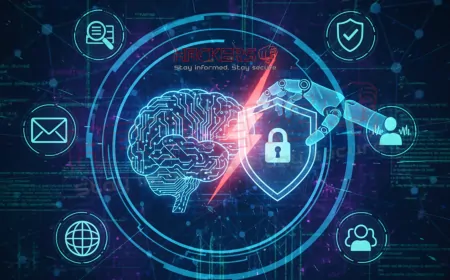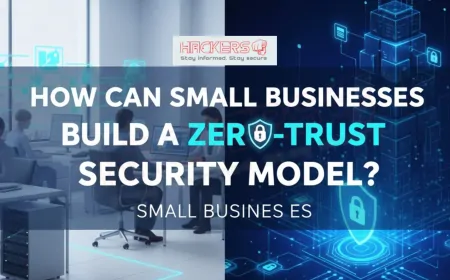How the CC Certification Builds Your Foundation in Cybersecurity
Imagine stepping into a world where every click, email, or online transaction could be a target for cybercriminals. It’s a bit like walking into a high-stakes adventure, but instead of capes or gadgets, you’re armed with knowledge to protect the digital realm. If you’re a beginner dreaming of a cybersecurity career—whether you’re fresh out of school, switching from a non-tech job, or just curious about keeping the internet safe—the Certified in Cybersecurity (CC) certification from ISC2 is your perfect starting point. This entry-level credential is like laying the first bricks of a sturdy house: it gives you a solid foundation to build a thriving career. In 2025, with nearly 3.5 million unfilled cybersecurity jobs globally and headlines buzzing about data breaches, the CC stands out as a beginner-friendly way to enter this booming field. But how exactly does it set you up for success? In this guide, we’ll explore how the CC builds your core skills, boosts your confidence, and opens doors to exciting opportunities. Written in plain language, this blog will feel like a chat with a friend who’s been there. Let’s dive in and see how the CC lays the groundwork for your cybersecurity future!

Table of Contents
- What Is the CC Certification?
- Core Skills the CC Teaches You
- Building Confidence for Beginners
- How CC Prepares You for Entry-Level Jobs
- Career Pathways and Further Growth
- Real-World Applications of CC Knowledge
- Why Choose Webasha for the Course
- Conclusion
What Is the CC Certification?
The Certified in Cybersecurity (CC) is an entry-level certification from ISC2, a globally respected nonprofit known for top-tier credentials like CISSP. Launched in 2022 as part of the “One Million Certified in Cybersecurity” initiative, the CC aims to address the global shortage of cybersecurity professionals by training newcomers.
The CC exam tests five key areas (called domains) through 100 multiple-choice questions (100-125 starting October 1, 2025, with adaptive testing), taken over 2 hours. You need 700 out of 1000 points to pass.
Why does this matter? In 2025, cybersecurity jobs are growing 29% through 2034, with over 457,000 U.S. openings alone.
Core Skills the CC Teaches You
The CC builds a rock-solid base by teaching five domains, each equipping you with practical skills. Here’s a breakdown in simple terms, with their exam weights:
| Domain | Weight | Key Skills |
|---|---|---|
| Security Principles | 26% | Understand confidentiality, integrity, availability; risk basics |
| Business Continuity, Disaster Recovery, Incident Response | 10% | Plan for disruptions, handle breaches |
| Access Controls | 22% | Manage who accesses what, physical and digital |
| Network Security | 24% | Protect networks, spot threats like viruses |
| Security Operations | 18% | Encrypt data, train others, monitor systems |
Security Principles: You learn the “why” of cybersecurity. Confidentiality means keeping secrets safe (like locking your diary). Integrity ensures data isn’t tampered with (no one changes your bank balance). Availability keeps systems running (you can access your apps). You also grasp risk management—spotting and fixing weak spots—and ethics, like being honest in your work.
Business Continuity (BC), Disaster Recovery (DR), Incident Response: This teaches you to plan for disruptions (like power outages) and recover from disasters (like floods or hacks). Incident response is about acting fast during a breach, like containing a virus before it spreads.
Access Controls: You’ll master who gets to see what. Think passwords, badges, or rules like “least privilege” (only give needed access). It’s like deciding who gets keys to your house.
Network Security: Learn how devices connect (like roads in a city) and how to protect them with tools like firewalls (digital gates) or spot threats like phishing emails.
Security Operations: This covers daily tasks—encrypting data (scrambling it for safety), training coworkers to avoid scams, and monitoring for issues.
These skills are your foundation, like learning to walk before running. They’re practical, not overly technical, and apply to real jobs.
Building Confidence for Beginners
Starting a new field can feel intimidating, especially with terms like “encryption” floating around. The CC is designed to build your confidence without overwhelming you. Here’s how:
- Simplified Content: The course uses plain language. For example, encryption is explained as “locking data with a secret code,” not a math lecture.
10 - No Experience Needed: Zero prerequisites mean anyone with basic computer skills can dive in. A Reddit user shared how they went from retail to passing CC in a month, feeling empowered.
15 - Free Resources: ISC2’s self-paced course (20 hours of videos and quizzes) is free, boosting your belief that you can do this without breaking the bank.
1 - Community Support: Forums like r/isc2 and ISC2 study groups let you connect with others, sharing tips and encouragement.
15
By mastering concepts like spotting a phishing scam or understanding why passwords matter, you’ll feel ready to tackle real-world challenges. This confidence is key for interviews, where you can explain ideas clearly.
How CC Prepares You for Entry-Level Jobs
The CC aligns directly with entry-level roles, making you job-ready fast. Here’s how it preps you:
- Practical Skills: Skills like identifying threats or setting up access controls are used daily in roles like security analyst ($60,000-$80,000) or IT support ($50,000-$70,000).
13 - Resume Boost: Employers trust ISC2, and the CC signals you’re trainable. Job boards like CyberSeek list thousands of entry-level roles valuing CC.
7 - Interview Prep: You’ll learn to explain concepts like “why confidentiality matters” or “how to respond to a breach,” impressing hiring managers.
- Global Appeal: The CC’s vendor-neutral nature means it’s valued worldwide, from U.S. tech hubs to Asian finance firms.
For example, a compliance assistant uses CC’s governance knowledge to check policies, while an analyst applies network security to monitor threats. With 457,000 U.S. job openings, your skills are in demand.
Career Pathways and Further Growth
The CC isn’t a dead end—it’s a springboard. After 1-2 years of experience, you can aim for roles like:
- Senior Security Analyst: Lead investigations, $80,000-$110,000.
- Security Consultant: Advise companies, $90,000-$120,000.
- Penetration Tester: Ethically hack systems, $100,000+.
It also sets you up for advanced certifications:
- SSCP: Needs 1 year experience, focuses on technical skills.
- CISSP: Requires 5 years, for leadership roles.
- CompTIA Security+: Broader IT focus, great next step.
The CC counts toward SSCP experience, speeding your progress.
Real-World Applications of CC Knowledge
The CC’s skills aren’t just for exams—they apply daily. Examples:
- Phishing Defense: You’ll spot fake emails, a top cause of breaches, and train others to avoid them.
- Password Management: Set up strong passwords or two-factor authentication, used in IT support.
- Incident Handling: Follow steps to contain a virus, critical for analysts during attacks like ransomware.
- Policy Compliance: Ensure rules are followed, key for healthcare or finance jobs under laws like GDPR.
A friend used CC knowledge to help their small business secure WiFi, preventing a potential hack. These skills make you a real-world protector, not just a test-taker.
Why Choose Webasha for the Course
While self-study works, Webasha Technologies offers a structured CC course that makes learning easier. Their expert-led program uses real examples to teach domains, with benefits like:
- Flexible Online Classes: Study anytime, with recorded sessions.
- Hands-On Labs: Practice scenarios like setting up access controls.
- Job Support: Resume help and job placement assistance.
- High Pass Rates: Over 90% success, with glowing student reviews.
Conclusion
The CC certification is your cornerstone for a cybersecurity career, teaching essential skills, building confidence, and opening doors to jobs and growth. From understanding risks to handling breaches, it equips you for real-world challenges in 2025’s high-demand market. Whether studying solo or with Webasha, the CC sets you up to protect the digital world. Start now—your foundation is waiting to be built!
What is the CC certification?
An entry-level cybersecurity cert from ISC2, no experience needed.
What skills does CC teach?
Principles, incident response, access controls, network security, operations.
Do I need tech experience?
No, just basic computer skills.
Is the CC exam free?
Yes, via ISC2’s promotion.
What jobs can CC get me?
Analyst, IT support, compliance assistant.
How long to study for CC?
4-8 weeks part-time.
What’s the passing score?
700 out of 1000.
Is CC globally recognized?
Yes, by ISC2.
What are the CC domains?
Five areas covering cybersecurity basics.
Does CC lead to advanced certs?
Yes, like SSCP or CISSP.
Is CC vendor-neutral?
Yes, applies anywhere.
What’s the annual fee?
$50.
Can I take CC online?
Yes, via Pearson VUE.
How does CC help beginners?
Builds confidence with simple concepts.
Are there free resources?
Yes, ISC2’s course and more.
What’s the exam format?
100 questions, adaptive from October 2025.
Why is CC valuable in 2025?
High job demand, 29% growth.
Can CC help career switchers?
Yes, it’s beginner-friendly.
What industries hire CC holders?
Tech, healthcare, finance, government.
How to prep for CC?
Use Webasha, ISC2 resources, practice tests.
What's Your Reaction?










































































